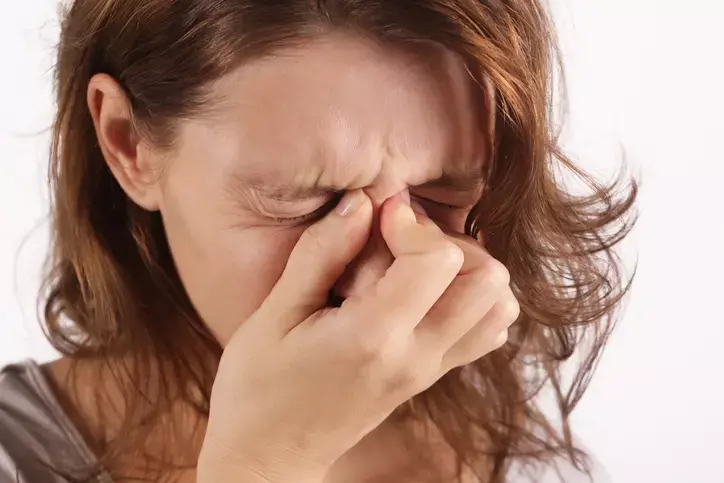- Home
- Medical news & Guidelines
- Anesthesiology
- Cardiology and CTVS
- Critical Care
- Dentistry
- Dermatology
- Diabetes and Endocrinology
- ENT
- Gastroenterology
- Medicine
- Nephrology
- Neurology
- Obstretics-Gynaecology
- Oncology
- Ophthalmology
- Orthopaedics
- Pediatrics-Neonatology
- Psychiatry
- Pulmonology
- Radiology
- Surgery
- Urology
- Laboratory Medicine
- Diet
- Nursing
- Paramedical
- Physiotherapy
- Health news
- Fact Check
- Bone Health Fact Check
- Brain Health Fact Check
- Cancer Related Fact Check
- Child Care Fact Check
- Dental and oral health fact check
- Diabetes and metabolic health fact check
- Diet and Nutrition Fact Check
- Eye and ENT Care Fact Check
- Fitness fact check
- Gut health fact check
- Heart health fact check
- Kidney health fact check
- Medical education fact check
- Men's health fact check
- Respiratory fact check
- Skin and hair care fact check
- Vaccine and Immunization fact check
- Women's health fact check
- AYUSH
- State News
- Andaman and Nicobar Islands
- Andhra Pradesh
- Arunachal Pradesh
- Assam
- Bihar
- Chandigarh
- Chattisgarh
- Dadra and Nagar Haveli
- Daman and Diu
- Delhi
- Goa
- Gujarat
- Haryana
- Himachal Pradesh
- Jammu & Kashmir
- Jharkhand
- Karnataka
- Kerala
- Ladakh
- Lakshadweep
- Madhya Pradesh
- Maharashtra
- Manipur
- Meghalaya
- Mizoram
- Nagaland
- Odisha
- Puducherry
- Punjab
- Rajasthan
- Sikkim
- Tamil Nadu
- Telangana
- Tripura
- Uttar Pradesh
- Uttrakhand
- West Bengal
- Medical Education
- Industry
Omalizumab may improve outcomes among patients with chronic rhinosinusitis with nasal polyps independent of allergic status

A recent analysis sheds light on the efficacy of omalizumab, an immunoglobulin E (IgE) monoclonal antibody, in managing Chronic Rhinosinusitis with Nasal Polyps (CRSwNP) across various patient profiles. The study, a post hoc exploratory analysis of data from POLYP 1 and POLYP 2 trials along with an open-label extension (OLE), aimed to evaluate the impact of allergic and asthma status on the response to omalizumab treatment in CRSwNP patients. This study was published in Annals Of Allergy, Asthma and Immunology by Philippe Gevaert and colleagues.
The analysis, encompassing 249 patients, grouped individuals based on the presence or absence of comorbid allergies, asthma, serum total IgE levels, and blood eosinophil counts. Throughout the POLYP 1 and POLYP 2 trials and the OLE, omalizumab demonstrated improvements in Nasal Polyps Score (NPS), Nasal Congestion Score (NCS), and Sino-Nasal Outcome Test-22 (SNOT-22) irrespective of patients having physician-reported allergic comorbidities, asthma, different IgE levels, or varying blood eosinophil counts. Notably, patients who continued or switched to omalizumab in the OLE exhibited a similar pattern of improvement.
Surprisingly, omalizumab treatment showcased significant improvements in sinonasal outcomes, regardless of allergic comorbidities, asthma status, higher or lower IgE levels, and elevated or normal eosinophil counts. These findings suggest that omalizumab's efficacy in improving CRSwNP symptoms remains consistent across a spectrum of patient profiles.
The study's outcomes imply that omalizumab holds promise as a viable treatment option for CRSwNP, regardless of the patient's specific allergy or asthma status. These findings could potentially broaden the scope of omalizumab's application, suggesting its efficacy across diverse endotypes and phenotypes of CRSwNP.
Reference:
Gevaert, P., Mullol, J., Saenz, R., Ko, J., Steinke, J. W., Millette, L. A., & Meltzer, E. O. Omalizumab improves sinonasal outcomes in patients with chronic rhinosinusitis with nasal polyps regardless of allergic status. Annals of Allergy, Asthma & Immunology: Official Publication of the American College of Allergy, Asthma, & Immunology,2023. https://doi.org/10.1016/j.anai.2023.11.001
Dr Riya Dave has completed dentistry from Gujarat University in 2022. She is a dentist and accomplished medical and scientific writer known for her commitment to bridging the gap between clinical expertise and accessible healthcare information. She has been actively involved in writing blogs related to health and wellness.
Dr Kamal Kant Kohli-MBBS, DTCD- a chest specialist with more than 30 years of practice and a flair for writing clinical articles, Dr Kamal Kant Kohli joined Medical Dialogues as a Chief Editor of Medical News. Besides writing articles, as an editor, he proofreads and verifies all the medical content published on Medical Dialogues including those coming from journals, studies,medical conferences,guidelines etc. Email: drkohli@medicaldialogues.in. Contact no. 011-43720751


